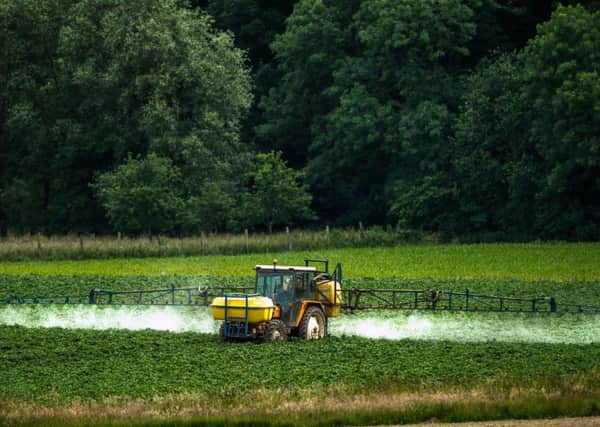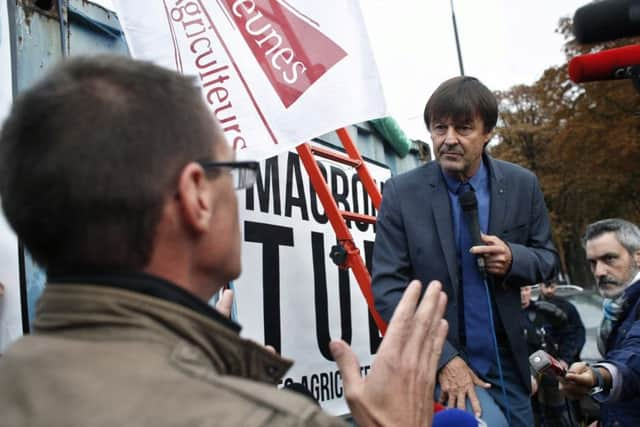More twists emerge in long-running saga over glyphosate
This article contains affiliate links. We may earn a small commission on items purchased through this article, but that does not affect our editorial judgement.


Discussing an official policy to cut back on the use of all pesticides, a spokesman for the French government indicated that plans had been drawn up to outlaw the use of glyphosate altogether by 2022.
• READ MORE: Farming news
However, the administration later back-pedalled on an outright ban, with confirmation of a broader desire to make “significant progress on all pesticides” by the end of its current five-year term.
Advertisement
Hide AdAdvertisement
Hide Ad

The country has, however, already instigated a ban on the use of the world’s most widely used weedkiller by French local authorities in non-agricultural situations – and will ban domestic sales for use in gardens by 2019.
Following major protests over the issue last week, France’s biggest farming union, the FNSEA, said that it was “out of the question” for the country to go it alone – claiming that by announcing a unilateral ban on glyphosate the French government would put its own farmers at a disadvantage against European competitors.
• READ MORE: EU stance on glyphosate leaves farmers ‘frustrated’
French politicians have, however, long made plain their intention to vote against the proposed re-registration of the product’s licence when the EU sits down to take a final decision on the issue next month.


The results of the German election have also cast doubt in some quarters over that country’s earlier commitment to back re-registration at the crunch vote.
With chancellor Angela Merkel returned to power with a reduced majority, a “Jamaica” coalition with a number of parties – including the Greens – could be on the cards. Commentators believe that while there was no certainty that this route would be taken, one of the key demands for co-operation was likely to be a reversal of this support for glyphosate re-registration.
With the voting likely to be finely balanced, the loss of one of the major supporting member states could be sufficient to result in re-registration not being granted for the whole of Europe, a major blow to growers in the wetter areas such as Scotland.
And with close to a million and a half signatories, a petition for the ban of glyphosate under the European Citizens’ Initiative has made it the fastest growing ECI since the EU introduced the tool in 2012.
Hint of breakthrough in devolved policy talks
Advertisement
Hide AdAdvertisement
Hide AdThere was a possible hint of a breakthrough in the long-running stand-off on future funding of agricultural policy yesterday, following a meeting of the devolved administrations and UK secretary of state for environment, food and rural affairs, Michael Gove.
Speaking after the meeting, Scotland’s rural economy secretary Fergus Ewing said that he was to seek confirmation of some of the clarifications which the UK minister had indicated on funding which covered forestry, fishing, farming and the environment and which went beyond pillar one direct farm payments.
Stating that recent uncertainty over this long-term funding for the rural economy had threatened a devastating impact on the sectors, Ewing said it was totally unacceptable that the UK government had still to give the required assurances.
“As such, I intend to write to Mr Gove to seek clear and comprehensive assurances on the commitments he gave today over guarantees on all EU rural funding – which includes forestry, fishing, farming and environment – until the end of the UK parliamentary term in 2022. If this is the case, this is a welcome development, but one, as we have been pressing for over a year, that should have been made much earlier.”
Ewing also said Gove had committed to further discussions on the carve-up of the £160 million of EU convergence uplift, a review of which had been promised for 2016.
He added: “Scottish farmers will not welcome more delaying tactics from the UK government as this money is long overdue and should have been returned to Scotland a long time ago, and I will continue to work for that outcome.”